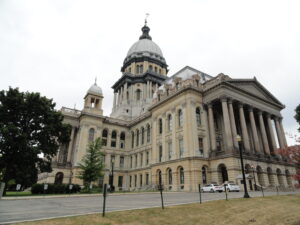
AI startup Anthropic has agreed to pay a settlement of $1.5 billion following allegations of copyright infringement and piracy. The lawsuit was brought forth by authors Andrea Bartz, Charles Graeber, and Kirk Wallace Johnson, who claimed that Anthropic illegally used their works to train its artificial intelligence models. The authors’ lawyer described the company’s actions as “brazen infringement,” asserting that Anthropic had downloaded known pirated versions of their books, created copies, and incorporated these unauthorized materials into its training processes.
The legal debate centered on the interpretation of “fair use” under copyright law. Nouvelle Gonzalo, a corporate law specialist focusing on intellectual property, provided insight into the case. According to Gonzalo, Anthropic contended that its AI-generated outputs qualified as transformative works, which means they differ significantly from the original materials. In contrast, the authors argued that their original works were essential to creating those outputs.
In a pivotal ruling, the judge sided with Anthropic on the copyright issue, determining that the company’s use of the materials fell under the category of fair use. However, the court also found that downloading the works from an online shadow library constituted piracy.
Significance of the Settlement
Justin Nelson, the attorney representing the plaintiffs, emphasized the significance of the settlement, stating, “This landmark settlement far surpasses any other known copyright recovery.” He noted that it is the first of its kind in the era of artificial intelligence and will provide substantial compensation to the authors involved. Nelson added that this case sets a precedent, mandating AI companies to compensate copyright owners for unauthorized use of their works.
Under U.S. copyright law, damages for infringement can start at $750 per work, potentially exposing Anthropic to penalties exceeding $1 trillion if the judge had ruled against them on all accounts. JD Harriman, a partner at Foundation Law Group, remarked on the case’s implications for future legal interpretations regarding AI, stating, “A lot of people want to make new law just for AI, but the old laws work. This is just standard copyright violation of unlawful copying or buying pirated material.”
The case highlights the ongoing tension between technological advancement and intellectual property rights. As AI continues to evolve, the legal landscape surrounding its development and the use of copyrighted materials is also expected to adapt.
Scripps News has reached out to Anthropic for comments regarding the settlement and its implications for the future of AI and copyright law.






